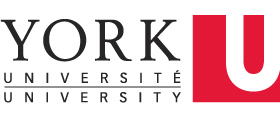North Korea: Translation and Literary, Cultural and Political Transformation in a Global Context
Cluster Objectives: Since the end of the Korean War translators in the ROK have worked on foreign literary works based on both those which had been introduced during the Japanese colonial period as well as a variety of new sources. The functions of translation in North Korea can be understood against the centuries of cultural traditions as well as the nation's colonial background. North Korean literature and culture have not yet been widely studied by international scholars. This cluster will one of the first to consider North Korean translational activities in the context of Korean literary and cultural traditions. The focus will be on both the work of translators themselves and the functions of translation in general in order to examine six crucial aspects: The role of North Korean translators in the formation of the socialist society, The relationship between translated and original Korean works, The institutional environment of translators, The comparison of the roles of translation in the two Koreas, The importation of foreign cultural ideas and practices, and the comparison of translational practices in North Korea and China, Vietnam and other socialist countries.
The project has three focuses. One is the study of translation and North Korean children's literature and film with a focus on the periodical "Adong Munhak" (Children's Literature) North Korean government regulations on education, and South Korea studies of North Korean children's literature. The second is the study of gender and translation in North Korea drawing on the history of the New Women (Shin Yosong) movement in the 1920s and 30s, and North Korean publications such as "Choson Yosong" (Choson Women). This cluster project will develop collaborations with scholars of other countries such as Russia, China and Japan. The third focus will investigate translation and interpretation and propaganda / security in North Korea. Key questions include: To what extent is English used as a lingua franca through which Russian, Chinese, Korean and other texts are funneled? Are there attempts to cross check the reliability of texts in agreements in the languages of the parties? Have there been any studies of the agency of translators, not just as transmitters of messages from one language to another, but as essential players in the process?"




